Trans People are Loved: Diverse Educators in Allyship
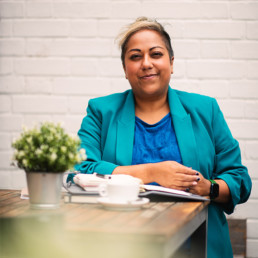
Written by Bennie Kara
Co-Founder of Diverse Educators
When a community comes together, beautiful things can happen. Here at Diverse Educators, we have witnessed the rise of transphobic narratives nationally and internationally and have felt, as many others do, an acute sense of helplessness about how to be active allies for the trans and non-binary people we know and love.
When we were approached by a member of the non-binary community in despair at hearing and experiencing such a wave of transphobia and gender critical rhetoric, we gathered associates and friends to discuss how we could do something, anything, to raise our voices and show that we could be ‘together-strong’. In time, this shaped into an evening solidarity event to take place virtually. We wanted to bring people together to signal, even in the smallest ways, that there is work to be done in protecting those who are increasingly marginalised in our society.
It was clear from the outset that we did not want to just focus on how difficult the social environment is for trans and non-binary people. We wanted, collectively, to use our voices to highlight both the reality for trans and non-binary people and the green shoots that we can see around us.
Our speakers were wonderful. Jo Brassington (they/them), a Diverse Educators Associate, outlined the legal aspects of trans and non-binary identities in schools. The wealth of comments and questions after their section showed that there is a real need for educators to have access to training on how to support and protect their trans and non-binary young people and colleagues. Hannah Jepson, (she/they) a business psychologist and expert in workplace inclusion, followed with a precis that highlighted the work of the corporate world in supporting trans and non-binary people at work. There were some enlightening comments in response showcasing best practice in the workplace. Finally, George White (he/him), a trans teacher and independent consultant/trainer on transgender identities and the Catholic faith, outlined the green shoots in how Catholicism is shifting the established narrative on trans and non-binary people.
Hannah Wilson, the speakers and I left the solidarity event feeling heartened that over 60 people had given their time to attend the event, with feedback that indicated a real need for follow up. While we knew that we wouldn’t be able to find distinct ways forward immediately, the networking and signposting that took place was useful in forging connections so that action can be possible in the future.
What we do in miniature creates ripples that, in turn, can create waves. This event served to show how much there is to do still in support of the trans and non-binary community, and each attendee was asked to pledge, if possible, what their next steps were using the hashtag #TransPeopleAreLoved. The pledges appeared like pebbles in the pond.
This is allyship.
Proud 2 b Me!!
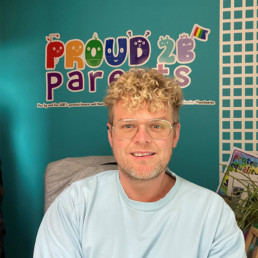
Written by Matt Taylor-Roberts
Matt Taylor-Robert (He/Him) is the Founder and Managing Director of Proud 2 b Parents and with his husband, Matt is an adoptive parent to their amazing son. He feels privileged to work for a regional adoption agency as an independent panel member and has previously worked for an independent foster agency within the same role. However, he had to step away from this role due to becoming a foster carer for this agency. Matt has previously worked within Children's Services for a local authority. To find out more about Proud 2 b Parents please head over www.proud2bparents.co.uk.
As a proud parent of a young person attending Proud 2 b Me, the UK’s only youth group specifically for children with LGBT+ parents or carers, I am constantly amazed at the benefits of this service and why there isn’t more like it across the UK.
Proud 2 b Me provides a safe space for young people aged eight and above to engage in various fun activities, such as kayaking, ice skating, and pizza making. However, the true essence of this youth group lies in allowing for discussions, offering support, and encouraging young people to navigate their unique family structures and be open about their identities.
Proud 2 b Me acts as a safe place where children 8 years and up can openly discuss their family structures and experiences, allowing them to explore and understand their own thoughts and feelings. The group sessions facilitate meaningful conversations about topics like handling prejudice, telling others about their family (‘coming out’), and embracing individuality. Witnessing my child interact with their peers, hearing their stories, and exchanging insights has been an incredible journey of self-discovery for them. The support received from like-minded individuals who face similar challenges has been invaluable.
Having inclusive spaces that celebrate diversity in all its forms is essential for children to grow and thrive, as well as meeting others from various backgrounds and family dynamics, the youth group encourages acceptance and develops a sense of belonging. By engaging in activities like kayaking, placard making and ice skating young people can develop friendships that extend beyond their family situations. They learn to appreciate differences, respect one another’s experiences, and build a strong support network that can be relied upon in times of need.
Coming out about one’s family structure can be a sensitive and complex process for some young people. Proud 2 b Me offers a supportive environment where individuals can openly discuss their feelings and experiences. The group provides guidance on how to approach conversations about their family structure with friends, classmates, and teachers, equipping them with the tools to navigate potential challenges confidently. Through discussions, and sharing personal anecdotes, these young people gain the necessary skills to articulate their identities and advocate for themselves authentically.
Peer support is the backbone of the community. Recognising the power of connecting with others who share similar experiences, the youth group facilitates friendships and support opportunities. The sense of camaraderie that emerges from these relationships is immeasurable. Young people can find comfort in knowing they are not alone and that others understand their journeys. The validation and encouragement received from peers empower them to embrace their identities proudly and combat any negativity they may encounter.
Proud 2 b Me provides a nurturing and supportive environment where young people can freely express themselves. Through engaging activities and facilitated discussions, the youth group equips our children with the tools to navigate conversations about their family structure and embrace their connection to the LGBT+ community.
Find out more by joining us at our free #DiverseEd webinar on Wed 8th Nov 4-5pm: https://www.eventbrite.co.uk/e/738879808397?aff=oddtdtcreator
Has EDI become a commercial business?

Written by Zahara Chowdhury
Zahara is founder and editor of the blog and podcast, School Should Be, a platform that explores a range of topics helping students, teachers and parents on how to ‘adult well’, together. She is a DEI lead across 2 secondary schools and advises schools on how to create positive and progressive cultures for staff and students. Zahara is a previous Head of English, Associate Senior Leader and Education and Wellbeing Consultant.
Last year, on my return to work after a short maternity break, I wrote a very candid post about leading EDI in schools. Almost a year on, I have had some wonderful opportunities with DiverseEd, The GEC, Teachit, Edurio, Schools Week, SecEd, Middle East Eye…all talking about diversity, equality and inclusion in education. Now working in the Higher Education sector, I am learning so much about intent vs impact, using Driscoll’s model of reflection. In using Driscoll’s model, I find myself questioning the EDI ‘work’ more and more – not its necessity (believe me, it’s more needed than ever), but whether or not it is making a sustainable impact and lasting change, or whether it is simply at risk of being a step on a ladder, a set of buzz words and a marketing asset for schools and organisations.
Is it right to be an EDI Lead?
George Floyd’s murder can be regarded as a watershed moment for anti-racism work, but also for diversity and inclusion. With the rise of Gen Z, Gen Alpha and social media, the EDI landscape has, in many ways, rocketed and quite rightly so. Although many think it drives a cancel culture and a call out culture, it has also led to meaningful change for people with protected characteristics. Equally, a growing number of companies are making EDI roles bigger, smaller or redundant. Speaking to friends and colleagues in the ‘field’ (especially global majority heritage colleagues), it seems EDI is a thriving, purposeful business, but one which is exhausting and draining too. To be completely candid, I have reflected and wondered whether I am toxically ‘profiting’ from my own ‘EDI’ trauma, story, knowledge, expertise (whatever you want to call it) and sometimes feel a level of guilt, imposter and also, loss.
It’s tough being vulnerable in the public and professional eye, laying bare your identity for the sake of strategy, culture, governance, policy and practice. I also worry about what’s next? Not necessarily because I think EDI will become redundant (this thought in itself is problematic and misplaced). Rather it is mentally and physically tough to work in a field so rich and granular, that I worry where and how the energy can be sustained.
The work is purposeful, important and of value. However, for it to be impactful and fulfilling we must start holding organisational leads, middle management, policies and practices to account. If there are policies and practices which have a detrimental, and historic impact on individuals with protected and non-protected characteristics (socio-economic status for example), no amount of training is going to fix that. Experience and very loose, qualitative research (candid conversations!) reveals consistency and commitment to inclusion at middle management level is just as important (if not more) to creating a culture of belonging.
To flip from business to culture, it is integral that leaders and managers intentionally and uncomfortably make the difficult changes necessary to create equitable work environments. Celebrate whistleblowing and call our culture, scrutinise and fix representation gaps, embrace flexibility and use positive action, inclusive recruitment strategies; do what you have to do to create a trusting and lasting culture for every employee and student.
Diversity across the curriculum is scratching the surface.
Whilst a diverse curriculum and EDI training is wholly important, and can have a life changing impact on young people (especially Early Years), it is but one cog in a set of very large and complex wheels. In my relatively short time of working in this space, I’ve learned just how easy it is to become a ‘tickbox’ or a ‘box ticker’, without even realising. All too often EDI is boxed in; it’s carved out like an isolated gym session (stick with me). We all know 1 run, 1 personal training session, or 1 class a week will not make a difference to our health unless we see to our eating habits, our mindset, consistency, our NEAT actions. A brilliant guest speaker may leave us high on endorphins like a Spin class, but then what? EDI is a hard, constant and ‘infinite’ journey that should never be redundant or complete – the world is ever-changing and diversifying, in our lifetime at least. If this thought leaves you exasperated or frustrated, flip those feelings and be curious instead: it provides a perfect opportunity to speak to an EDI specialist or students and staff with protected characteristics to ask, how can inclusion and belonging become an active part of day-to-day, micro and macro policies and practices in your workplace? Listening is important, developing and actioning a plan is fundamental.
In her book, The Courage of Compassion (2023), Public Defender, Robin Steinberg says ‘the struggle for social justice is won […] one person at a time’. With every feeling of imposter and exhaustion I simultaneously realise just how purposeful, impactful and necessary equality and diversity is – in education, the workplace and society. Of course, the ‘business’ of finding solutions and making a tangible impact is very important, however the ongoing work, the self-reflection, the side-by-side influences, are perhaps integral to keeping diversity and inclusion at the centre of every business and organisation.
Launching a network for new leaders made me a better ally
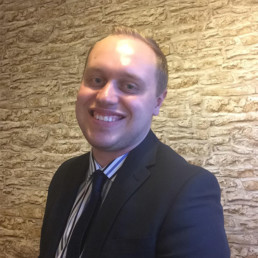
Written by Ben Hobbis
Teacher, Middle Leader and DSL. Founder of EdConnect and StepUpEd Networks.
Are you a new leader, like the idea of leadership but struggle to find the balance between teaching and leading? Are you someone who wants to lead or be a leader, but not knowing how to get there, feeling a bit stagnant? You might be a leader developing, but in the wrong organisation? You might not see leaders like you? This is why Step Up was set up.
Step Up is a new network for new and aspiring leaders in education, particularly at middle and senior leadership levels in schools. Upon starting the social media account, and subsequent network, we surveyed people to find out who our community are and what they want/need. This has been incredibly useful. It’s been great getting to know our community.
From this research and insight, we have constructed five ‘leadership themes’ that we base our content and output around. We base our speakers, events, blogs and much more around these themes. The five themes are: Leadership Journeys, Leadership Barriers & Challenges, Leadership Development, Leadership Wellbeing and Leadership Diversity. Now, whilst many of these will overlap when people speak, present and write to these.
I personally as the founder wanted to ensure that whatever we do, we are inclusive and that we are diverse in order to create a community where our network members belong. Now, as a heterosexual, white, able bodied, cisgender man who doesn’t have children and is fairly financially stable, I know I’ve had it easier than others. However, I have always committed to be an inclusive ally and a HeForShe ally also. I have been a keen supporter and champion of Diverse Educators since signing up to social media and their journey started. One thing I have released is that I’ve continued to learn as an ally.
One of the biggest learning curves was Step Up’s Launch Event. As I co-hosted alongside one of my fellow network leaders, WomenEd’s own Elaine Hayes, I listened attentively to our speakers. I listened to their vulnerability; to their negative and positive experiences; to their struggles; to their hopes and wishes; to their experience and tips. I felt quite emotional in parts listening to in some cases abhorrent behaviour that they (or colleagues, friends or family) had been subjected to as part of their journey.
I’ve summarised some of the key takeaways from some of the presentations, that may be useful for the audience reading this…
Parm Plummer, WomenEd’s Global Strategic Leader and a Secondary Assistant Headteacher based in Jersey presented on Women in Leadership. Her talk initially started with sharing the fantastic work of WomenEd: their campaigns, partnerships, networks (including their global reach) and the development opportunities they provide for female leaders. Parm then went on to help navigate the process of stepping up as a female leader. Initially, sharing the only image of a woman that came up during a Google search; before going on to provide tips to write a job application through to negotiating your terms. Parm gave tips including finding allies and joining networks.
Helen Witty, a neurodivergent Lead SENDCo based in the East of England who gave a pre-recorded video on Neurodivergent Leadership. She shared an insight into her job and life, as a SENDCo with ADHD. She shared about how being open about her ADHD at her job interview and how it positively impacts her life and those who she works with. Helen also gave a fantastic insight into the role of a SENDCo, for all those who aspire to this role.
Stephanie Shaldas, a secondary deputy headteacher leading on diversity and inclusion based in London. Her talk Leadership in Colour: Senior Leadership as a Black American Woman started with a story from March 2021 whilst she was working as an Acting Co-Headteacher. This story was based around Prince William visiting her school. What was a forty-five minute visit, led to a weekend of trending on Twitter, including one Tweet: ‘Who dressed up the secretary in African cloth and trotted her out?’ Stephanie went onto talk about her journey and how she felt like school leaders didn’t look like her, when she was in her early career. She shared her inspiring path to leadership including her own education as well as teaching and leadership roles at middle and senior level spanning both curriculum and pastoral. As Stephanie said, “If I can, then you can!” – find your why and explore your passions!
Mubina Ahmed, Head of Science Faculty, based in London gave a presentation titled: ‘Using my minority lens to lead.’ Mubina went on to talk about how she used her minority ethnic background to her strength in her leadership journey. She posed the key question: ‘Do we have equity in teaching?’ Mubina used research and evidence to back up every piece of advice and information that she gave; talking about building allies to help you bring your chair to the table.
Albert Adeyemi, co-founder of Black Men Teach and a Head of Year based in the East of England gave a talk based around wellbeing and belonging in leadership. He spoke eloquently about the importance of wellbeing, how every interaction with others builds up to this. He narrated the sense of being needed versus feeling wanting and knowing what you need to fill your cup, to achieve wellbeing and belonging. The part that really blew me away was a surprise from Albert, a spoken word about belonging; a part of the event which brought a tear to my eye.
Jaycee Ward, a phase leader in a Yorkshire primary school, spoke about imposter syndrome, based around her journey as a young senior leader. Jaycee narrated her journey to date and how she has completely changed her narrative and inner critic. She shared her five top tips for combatting imposter syndrome: Seek Support, Embrace Vulnerability, Celebrate Achievements, Self-Compassion, Self-Reflection. Something, everyone at the event resonated with.
Nicola Mooney, a secondary deputy headteacher based in the South West of England, who also volunteers for WomenEd and MTPT Project, gave an interesting presentation on ‘non-linear career paths’. She shared her journey through her career to date including multiple maternity leaves and periods of IVF. Nicola shared how by not going through the ‘traditional’ upward trajectory has enabled her to be successful both as a teacher and as a mother. It was a talk many welcomed, knowing it is not as simple and always useful to be continually promoted.
I feel very privileged to have spent time in the virtual room with these fantastic Diverse leaders. Step Up (and I) will continue championing for diversity, equity, and inclusion within the education leadership sector; and will ensure everyone has the chance to share their stories. If you want to get involved and find out more, then follow us on X (formerly Twitter) @StepUpNet_Ed and check out our website: www.stepupednet.wordpress.com.
No time to say “we don’t have time” when it comes to diversity in literature
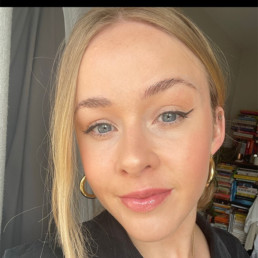
Written by Jessica Tacon
Jessica Tacon is second in charge of the English Department at City of London Academy Highgate Hill and is a member of NATE’s (National Association for the Teaching of English) ‘Reviewing Literature’ working group. She created The Right Writing campaign which aims to improve racial diversity in English Education.
Knee-jerk: “a quick reaction that does not allow you time to consider something carefully”
When a topic or issue becomes present in the public eye (often despite having always been of paramount importance, as is the case with diversity and inclusion in education) or it begins to feel more urgent, there can be pressure to actively resist or even just to react.
The pressure that I am referring to here comes from the expectation that education should be diverse and inclusive, something which has failed to be considered over decades. The pressure point is the realisation of this failing; the need to respond becomes pressurising as organisations need to be seen as doing the ‘right’ thing.
But the bottom line is that schools absolutely must not be exhibiting knee-jerk or quick-fix solutions to improving the diversity and inclusion of education. We need to make it a priority to find that beautiful balance between speed and solutions; remember, the first organisation to make changes in the way of diversity and inclusion is not necessarily the organisation doing the work most properly.
Making time, not taking time
Showing support for a cause without taking action at first can be a good thing. Note I said “can”. Far too many organisations, schools included, have used the excuse of wanting to ‘take their time’ as a guise for the fact that, actually, diversity and inclusion isn’t their priority. To this aim, time must be carved out at a systemic level to plan, implement and maintain changes in the education sector.
What can this look like? In reality there isn’t a one size fits all approach, it can look like many things. For specific questions to help schools to approach changes or to reflect on whether their current approach(es) are purposeful in the ways that truly matter, please see the full version of this article on the Pearson website.
With so many pressures on our time and headspace, tokenism, virtue-signalling and ‘quick’ fixes (which usually fix very little) can be tempting. But when we look at the absolutely unarguable benefits of a truly diverse and inclusive education, we cannot afford to not consider every single aspect of the above questions in everything that we do.
Evaluating English
Let’s look at the subject of English as an example. English A Level uptake has been declining for some time; research is still being done as to why but initial findings show that students do not feel that English is relevant for them or offers them career pathways. In 2018/19, only 19% of students who took English Literature at A Level were Black, Asian or of a Minority Ethnicity (Source: GOV.uk available on request).
Where does this lack of students studying English at A Level come from? In 2018 The Runnymede Trust found that nearly 92% of teachers in state funded schools were White, in 2020 Publishing Perspectives found that only 13% of people working in the publishing industry were Black, Asian or of a Minority Ethnicity and it is not unusual for a pupil to leave school having never studied a book by a Black author, as shown in research carried out by Penguin Random House. It does not take too much evaluation to see the vicious cycle that has been created: everywhere that young people turn they do not see themselves. This forms one example of why all the aforementioned changes need to happen, if it even needed to be pointed out in the first place.
A real reflection
As the writer Junot Díaz puts it:
“You know, vampires have no reflections in a mirror? There’s this idea that monsters don’t have reflections in a mirror…It’s that if you want to make a human being into a monster, deny them, at the cultural level, any reflection of themselves. And growing up, I felt like a monster in some ways. I didn’t see myself reflected at all.”
What Díaz describes here about representation is one facet of these changes; schools must look beyond “representation, and the pitfalls of tokenism, to thinking about how schools can be proactive in tackling racism” as The Runnymede Trust puts it.
Ultimately, what we are offering in educational settings is not truly an education until every aspect of education has changed to represent, include and celebrate every child. We are already behind, now we must come together and push forward diversity. There is no other option.
Take Back the Narrative: Reflections on #DiverseEd Conference
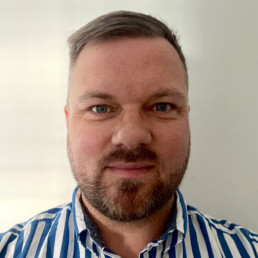
Written by David Church
David is an LGBTQ+ education consultant and former Deputy Head Teacher. He has over 10 years experience in education and is passionate about supporting schools to develop an LGBTQ+ inclusive culture and curriculum. Outside of education, David is a Regional Ambassador for It Gets Better UK.
Attending the #DiverseEd Conference in Bristol on Saturday felt perfectly timed. The backdrop of recent developments from the UK government regarding the trans community weighed heavily on my mind as I prepared for the day ahead. It seemed as if the trans community was under siege from multiple angles: teachers potentially being allowed to discriminate against trans young people in schools (https://www.thepinknews.com/2023/09/23/ehrc-guidance-trans-misgendering-pupils-schools/) and the proposed ban on trans women from women’s wards (https://www.theguardian.com/society/2023/oct/03/trans-hospital-patients-in-england-to-be-banned-from-female–and-male-only-wards).
As a cisgender gay man who had previously faced adversity under the infamous Section 28 (and the legacy since), I felt a deep empathy for the trans community, witnessing their increasing vulnerability and the reported surge in hate crimes against them (https://www.gov.uk/government/statistics/hate-crime-england-and-wales-2022-to-2023/hate-crime-england-and-wales-2022-to-2023).
As an LGBTQ+ education consultant, I was acutely aware that action was needed to ensure the safety of trans+ children, young people, and staff in schools. Fortunately, the conference offered a range of sessions on just this, highlighting the need for greater trans inclusion & diversity.
Every session I attended resonated with me on both a personal and professional level, but my mind was consumed with the urgent need to address the ongoing challenges faced by the trans community.
The first workshop I attended was led by Sarah Bonnell School, focusing on social justice in schools and empowering students to enact change within their communities. Their discussion of “cold anger” as a catalyst for change struck a chord with me (https://www.psychologytoday.com/gb/blog/brave-talk/202109/4-types-anger-everyone-should-know-about). This anger, when harnessed, could drive the transformation needed to combat the prevailing discourse around trans inclusion.
Equally, Shaun Dellenty’s keynote, highlighted the importance of challenging the narrative of fear and division, emphasising that we are stronger together, whether or not we identify as trans. The theme that stuck in my mind: How do we channel this anger and negative energy into positive action?
Similarly, in Bennie Kara’s keynote, the power of stories to reshape narratives was explored. She discussed how we need to move beyond viewing the trans community as victims or dangerous (a perception which has continuously been fed by media and entertainment). The history of LGBTQ+ rights is full of unsung heroes such as Marsha P. Johnson and Sylvia Rivera, who spearheaded the original Stonewall uprising. Yet, their stories are often overlooked in the narrative of our school curricula.
It is imperative that we teach about these individuals to reframe the narrative and challenge prejudices and biases. This will foster a more respectful society, one that goes beyond mere tolerance to genuine acceptance of every individual, regardless of their identity.
Jo Brassington, in their session on trans and non-binary inclusion in schools, passionately reminded us that silence and indifference regarding trans+ inclusion make us complicit. It reminded me of the words of David Morrison, Chief of Army in the Australian Army, which echo this sentiment: “The standard you walk past is the standard you accept.”
This is not about understanding what it means to be trans but about having compassion and acceptance for every trans person; knowing them as individuals and hearing their story. Stories have been central to human culture since time began, and it is now time to reshape these stories in the public eye. As agents of change, we must stand with the trans community, working towards a compassionate view that acknowledges them as individuals.
The #DiverseEd Conference offered a glimpse into the power of collective action, empathy, and storytelling to take back the narrative, ensuring that the voices and experiences of the trans community are heard, respected, and valued. We, as educators, have a unique opportunity to lead this transformation, shaping a more inclusive and compassionate society by ensuring our curriculum fosters a positive narrative of a range of trans people; from the books we read, to the significant role models we explore and the policies we have in place. Taking back the narrative is not just a goal; it’s a collective responsibility that we must all be conscious about in our schools.
Supporting Parental Engagement for EAL Students
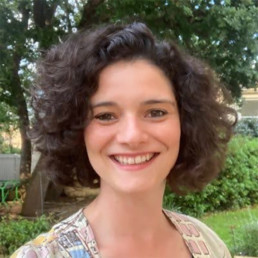
Written by Emma Sheppard
Emma founded The MTPT Project, the UK's charity for parent teachers, in 2016 when on maternity leave with her first child. She has 12 years experience as an English teacher, Lead Practitioner and ITT Lead, and now runs The MTPT Project full time.
I’m now into my third year of immigrant living, having relocated to France with my family in 2021, and – amongst all the other rather enormous changes – one of the most insightful experiences has been navigating the French education system with two children now in infant and primary school.
For context, our move to France marked the first time in twelve years that I hadn’t started September as a teacher. As a consequence, it was also the first time as a mother that I had been responsible for all the school runs, dropping my children off at their class, rather than breakfast club or handing over from an after school nanny. My children are bilingual, thanks to my French husband, and my French is competent, but – oh my! – have I felt the panicked feeling of perpetual confusion, catch up and miscommunication over the last two years!
Of course, having previously worked in schools with a high percentage of EAL, bilingual and multi-lingual students, and even managed our EAL department, it has been fascinating to be on the “other side”. But this insight has pertained, not to my children’s experience (indeed, my daughter is arguably more comfortable in French than in English), but to how we can support the parents in our communities who may not be fluent English.
Here’s what’s been really helpful for me, as the “F(French)AL” parent at the school gate…
Information Evenings
A short information evening early on in the term where parents get the chance to see their children’s classroom, leaf through their books, visually take in which book is the planner, which is for reading, what homework might look like etc., is a great starting point. It provides the opportunity for parents to demonstrate their level of English, and for teachers to take note of any families that might need additional support in clarity of communication. It also introduces parents to each other so that families speaking the same language can find each other and build community, or get added to the class WhatsApp group so they don’t miss out on important reminders or get togethers.
I make a point of speaking up at these meetings, and talking to the teacher afterwards so that they can really hear the extent of my clumsiness in French, but some parents might not feel comfortable doing this. Quietly engaging with parents as they come in, or leave the meeting with more than a “hello”, “good bye” can be a good way for teachers to get a better idea of how much English our families have.
Asking all parents in these meetings, their preferred means of communication – email, telephone, in-person, notes in planners – is a sensible way to secure clarity of communication from the start. Some parents may be able to speak and understand English confidently, but their literacy skills may be weaker. Some parents may be adept at using Google translate and balk at telephone conversations. Equally, for our native or fluent English speakers, email may be far preferable in a busy working day, to the interruption of a telephone call.
At the School Gate
The relaxed, conversational moments at the school gate are a great opportunity to show with smiles and gestures that students have had a great day, or to point out an important piece of information in a letter going home, or even to tackle challenges. This might be normal practice at primary level, but is particularly helpful for parents without much English who may otherwise have no means of knowing how school is going.
The hovering time afforded to me by the physical presence of teaching and support staff at the gate of my children’s first school meant that I was able to get to grips with how school lunches worked, wraparound care, strike days, when to bring in packed lunches, what on earth the system of cover teachers was in France. Remember that different countries have hugely different approaches to all aspects of education, and ways of doing things outside the classroom might be completely alien to some of our families – they were to me!
At secondary level, it might be trickier, especially beyond KS3 where students are more independent, but knowing which parents do collect their students, and swapping in a gate duty once in a while is a great opportunity for relationship building.
Inclusive Homework
Never have I had such thorough French lessons as when my son started CP, the equivalent of Year 2 when children learn to read in France. Every evening, he was required to read through syllables and increasingly complex passages from his Taoki text book. My pronunciation, vocabulary and understanding of French linguistics improved immeasurably over this year, even if I still can’t differentiate between the different ‘oo’ sounds. I now have two miniature teachers, as well as the shadow of their teachers to support my progress in French.
Homework activities – and resourcing these effectively – that allow parents to learn alongside their children, even if they are doing this surreptitiously rather than pro-actively, are a great way to boost parents’ own language skills.
Celebrate Home Languages
Yes, yes, I’m an English teacher and will leap at any chance to read a story and perform in front of an audience, but the jokes from parents and teachers about helping them to improve their English have resulted in a termly story-time slot for three year groups in my children’s current school.
As English speakers, we’re in the privileged position of speaking the global language of business, and as such, English is a valued language in most countries. Unfortunately though, this means that we look down – as a general culture – on other languages or consider them irrelevant.
This contempt is interlaced with prejudice, and I’ve definitely been on the receiving end of light-hearted mockery or messaging coming through my children and their friends, that indicates that these attitudes are also present in France. It creates tension, wariness and defensiveness and I’m incredibly conscious of the parents and teachers who make room for me, and are generous with my language – allowing me to make mistakes and feeding me vocabulary when I stumble – and those who look at me with fear or discomfort when I begin talking.
Story time has provided an opportunity to celebrate English – I deliver with props and songs and emphasis, and follow-up worksheets – and the children love it and share this enthusiasm with their families. Not all parents will be interested or available for a set up like this, but events like World Book Day, a Home Cultures or International Day, are great opportunities to invite primary school parents to come in and tell a story in their home language. At secondary level, this could take the form of a drop down day or afternoon where parents, students and teachers set up a national market place stall of treats, games and language challenges for students to explore.
Offering community languages as an optional GCSE is also a hugely important signal that other languages are valued in your school. Parents need to be informed of how their can support their children with this extra-curricular commitment, and the importance of speaking, reading and writing the home language. Some parents might even be interested in supporting with language clubs, additional tuition, mock paper marking, or speaking exams.
Most importantly, remember that language limitations don’t make parents lesser, and it is definitely not our role as teachers to dictate how much English our students’ parents should speak, or the languages that should be spoken at home. Bilingualism and multilingualism are a gift, and “Time and Place” bilingualism – where specific locations (e.g. home and school) – are delineated for one or other language is a tried and proven method for building native fluency in more than one language.
Parents’ English may improve over time, or they may be very content with the level of language they have. This may be particularly true if they have secondary aged children and school is the only reason they need to understand or use their English. With small adjustments – many of which are attitudinal – we can embrace the parents of our EAL students and facilitate inclusive environments where they can engage with their children’s education in a way that feels appropriate to them.
“But is it age-appropriate?”
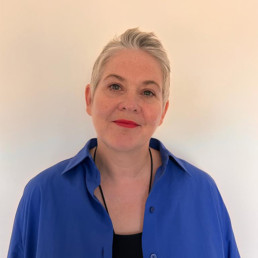
Written by Gerlinde Achenbach
Gerlinde Achenbach is a senior education consultant and former primary headteacher. Her career spans more than 35 years, with over 30 years teaching in schools. Since 2021 she has been supporting schools across the UK with Equity, Diversity & Inclusion, specifically LGBTQ+ inclusion. Her expertise is in leadership and changing school culture.
It’s now 20 years since Section 28 was repealed in England yet in primary schools we’re still, it seems, reluctant to talk with young people about being lesbian, gay, bisexual, trans or more. Some of us can’t get past the LGBT+ acronym, never actually defining what each letter stands for.
“Can I say ‘gay’ in Year 2?” one lead teacher for EDI was asked recently. We were talking during a recent 1:1 coaching session on developing best LGBT+ inclusive practice across the school. Deeply frustrated, the teacher bemoaned her experience with colleagues: “Some of them won’t include it beyond PSHE. Others never get round to it, telling me they’ve run out of time.”
Many primary class teachers are fearful of parental backlash in front of groups of other parents and their children. Some know that their senior leader colleagues are just as wary. And it’s true, this is one area where some parents and carers often feel emboldened to speak their mind. It’s embarrassing to be on the receiving end and, if you’re not confident about why we’re including LGBT+ themes in our learning and our environments, it’s easier to put your head in the sand. But let’s not forget that it’s statistically very likely that every family will have someone – parent, uncle or aunt, sibling, cousin or grandparent – who is lesbian, gay, bisexual, trans, queer or more.
“We want to make sure it’s age appropriate…”, say primary schools.
The DfE’s compulsory guidance on RSE came into force in September 2020, stating, ‘Primary schools are enabled and encouraged to cover LGBT content if they consider it appropriate to do so.’
With an independent review currently in progress to ‘advise the Secretary of State for Education on what is appropriate to teach in relationships and sex education and health education, and at what age’ , the stakes for ‘age-appropriate’ are high.
Of course, it’s important that the curriculum is appropriate for the age and experience of the children in each year group. But let’s not forget that when we talk about equity, diversity and inclusion, we’re moving beyond curriculum into the realm of whole school culture. The reservations we may have about being LGBT+ inclusive in younger year groups do not sit well with a culture of inclusivity and belonging. As a Primary Headteacher, I know that the majority of primary schools now include at least a handful of same-sex parented families, and often at least one child questioning their gender. That’s not forgetting the afore-mentioned LGBT+ relatives and friends. Surely we owe it to all the children living in LGBT+ families to see their own lived experience validated by our practice and provision? At the very least, our culture and curriculum should reflect and represent our LGBT+ children, both those who know it already and those who will know it soon enough. It’s our moral duty.
So, what could be more appropriate, for EYFS up, than talking about how families are made up differently, and that they have love for each other in common? Quite simply it is appropriate to have a curriculum where we share stories with young children about families and individuals who may dress, speak, identify or love differently from those they know, whilst talking about kindness and respect. We must also surely help children try to understand the injustice of being discriminated against, or harmed, simply for loving someone of the same gender.
We know that learning about sexual orientations other than heterosexuality does not ‘make you gay’, any more than learning that some people question the gender assigned them at birth ‘makes you trans’. Young people are discerning and knowledge is power. If any of the above applies to them, they will learn about it in a safe, accepting space. If it doesn’t apply, they have learned respect and compassion for others. Is it then morally acceptable to put our heads in the sand when we know that through educating our children, we educate our families and our communities?
Put simply, LGBT+ inclusion is about showing respect and compassion for all LGBT+ people as equal members of our diverse school and wider communities. It’s about being included in every aspect of school life and knowing you belong.
It’s always appropriate, at every age.
Environment and Identity: A Fragile Balance
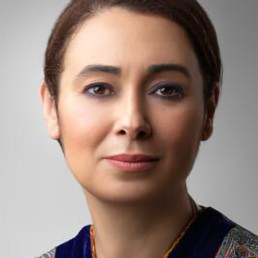
Written by Rachida Dahman
Rachida Dahman is an international educator, a language and literature teacher, and an educational innovator. She started her career in Germany as a teacher trainer advocating the importance of relationships above academics. She then moved to Luxembourg where she teaches German language and literature classes to middle and high school students. She is an award-winning poet, co-author of the best-selling book, ATLAS DER ENTSCHEIDER Entscheiden wie die Profis- Dynamik, Komplexität und Stress meistern.
In a complex world with complex problems, young people are struggling to uncover their identities. Social media and social constructs simplify thinking into binary perspectives that are limiting their capacities to grow and develop an understanding of themselves and the world. Unfortunately, some school curricula and environments may be contributing to this growing problem that directly impacts student wellbeing.
So much of students’ worlds seem to fall into a good/bad, right/wrong, preconstructed view of what they should think, believe, feel, and who they should or should not be. In this binary construct, students are not able to explore their own perceptions, opinions, or understandings because they have not had the freedom to develop the ability to observe, ask questions, discuss, and learn about differing perspectives in a constructive way. Schools should strive to create an environment that welcomes and encourages students to share, explore, and grow. In order for them to feel safe to do so, the atmosphere must not be argumentative. Rather, it must be one that approaches differences from a lens of love and learning.
It may seem easier to avoid discussing controversial topics in order to steer away from conflict and difficulty that stir emotions. However, when we participate in this avoidance, we miss out on an opportunity to teach students how to explore their feelings, have rigorous, meaningful conversations, and learn from those with differing viewpoints in a positive way. By modeling an avoidance behavior, we are inadvertently supporting this binary way of thinking that leads to a hindrance in student growth. In order to assist in students’ development, schools can create an environment where people are able to discuss controversial subjects in a respectful way that comes from a place of learning, understanding, and growing rather than judgment.
Schools should be a safe place for contemplation, evaluation, and learning and not one that prescribes what students should think and how they fit into a pre-described way of being. This freedom, or lack thereof, has a direct impact on student wellbeing. Educators should be inviting students each morning to feel strong and capable, supporting them in framing their own personalities and identities. In order to do that, they must feel safe sharing who they are in an environment designed to listen and learn without fear of others jumping into a defensive or attack mode. A safe space environment is cyclical in nature. In order for students to feel heard without judgment they must also learn to listen without judgment. One cannot occur without the other.
Students must learn to find value in the opinions, thoughts, and beliefs of others. Educators can assist in this learning by teaching students that there are 101 perspectives on the same problem. Rather than always presenting a definitive answer, issues can be explored from various angles. In addition, we must teach and model the use of kind words that are full of love rather than aggression, and that strive to unite rather than divide. As you enter your schools every day, ask yourselves these questions:
- Am I encouraging differing viewpoints and creating a safe space for them to be shared?
- Am I modeling a behavior of openness for judgment-free conversations?
- Am I demonstrating kind, accepting language?
- How can I help students to avoid defensive or aggressive language and responses?
The formation of identity and wellbeing is fragile. Schools have a responsibility to create environments that are conducive to open discussions, free from aggression, and safe for honest and authentic conversations geared toward learning, understanding, and growth. It is through this climate of successful cooperation and mutual support that we can counteract the negative impacts of binary thinking and help students create healthy identities.

